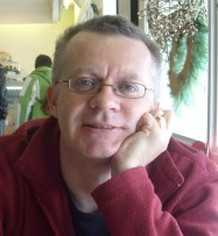Important dates
- Submission deadline: 1 May 2015
- Author notification: 1 June 2015
- Papers ready: 15 June 2015
- Tutorials: 13-14 July 2015
- Workshop: 15-17 July 2015
All deadline times are Anywhere on Earth.
The 12th International Workshop on Quantum Physics and Logic will take place at the Department of Computer Science of the University of Oxford between Wednesday 15 and Friday 17 July, 2015.
QPL is a workshop that brings together researchers working on mathematical foundations of quantum physics, quantum computing, spatio-temporal causal structures, and related areas such as computational linguistics. Of particular interest are topics that use logical tools, ordered algebraic and category-theoretic structures, formal languages, semantical methods and other computer science methods for the study of physical behaviour in general.
Previous QPL events were held in Kyoto (2014), Barcelona (2013), Brussels (2012), Nijmegen (2011), Oxford (2010), Oxford (2009), Reykjavik (2008), Oxford (2006), Chicago (2005), Turku (2004), and Ottawa (2003).
The workshop will be preceded by tutorials on Monday 13 and Tuesday 14 July 2015.
All deadline times are Anywhere on Earth.
Prospective speakers are invited to submit a contribution to the workshop. We are considering two kinds of contributions.
Extended versions of accepted original research contributions will be published in Electronic Proceedings in Theoretical Computer Science after the workshop.
Submissions should be prepared using LaTeX, and must be submitted in PDF format. Use of the EPTCS style is encouraged. Please submit your contribution via EasyChair.
There will be an award for the best paper whose authors are all students, at the discretion of the programme committee.
Perimeter Institute

Probabilistic general relativity with agency in an operational framework
Monday 13 July and Tuesday 14 July there will be tutorial talks.
Here is the full programme: for the tutorials and the main workshop. The conference dinner will be on Thursday 16 July, at the Cherwell Boat House. The accepted talks are:
![]()

![]()

![]()

![]()

![]()

![]()

![]()

![]()

![]()

![]()

![]()

![]()

![]()

![]()

![]()

![]()

![]()

![]()

![]()

![]() (best student paper)
(best student paper)

![]()

![]()

![]()

![]()

![]()

![]()

![]()

![]()


![]()

![]()

![]()


![]()

![]()

![]()

![]()

To register, please complete the online registration form. The registration form includes the possibility of pre-arranged accommodation at a reduced price.
Here is a list of participants.
Oxford is the home of the oldest university in the English speaking world, and boasts many tourist attractions. It is easily reached from London's international Heathrow airport via the so-called airline bus service. For more information see these travel directions.
We have reserved a number of rooms in Keble College for participants at the reduced rate of 42 pounds per night. These can only be booked for either 5 or 6 nights, 12-17 or 12-18 July 2015, on a "first come, first serve" basis. A room can be reserved when you register.
Oxford has a wide range of places to stay, including college accommodation, private rooms and flats, or short term properties to share, and many bed and breakfasts (B&Bs) and guest houses. Particularly well located B&Bs are Cotswolds, Rewley House, Linton Lodge, Parklands and Galaxie Hotel. Please contact Destiny Chen should you need further information. Demand for accommodation in Oxford is high, so the rule of thumb is to book a place as soon as possible. In terms of areas, Central/North Oxford and Jericho are the closest to the workshop venue, then along Botley Road, Abingdon Road, Cowley Road (the multicultural downtown of Oxford), Iffley Road, and Wolvercote.
The workshop will be held in Lecture Theatre B of the Department of Computer Science.
Oxford hosts many tourist attractions and events. For example, you could complete your Oxford experience by seeing a Shakespeare play outdoors.